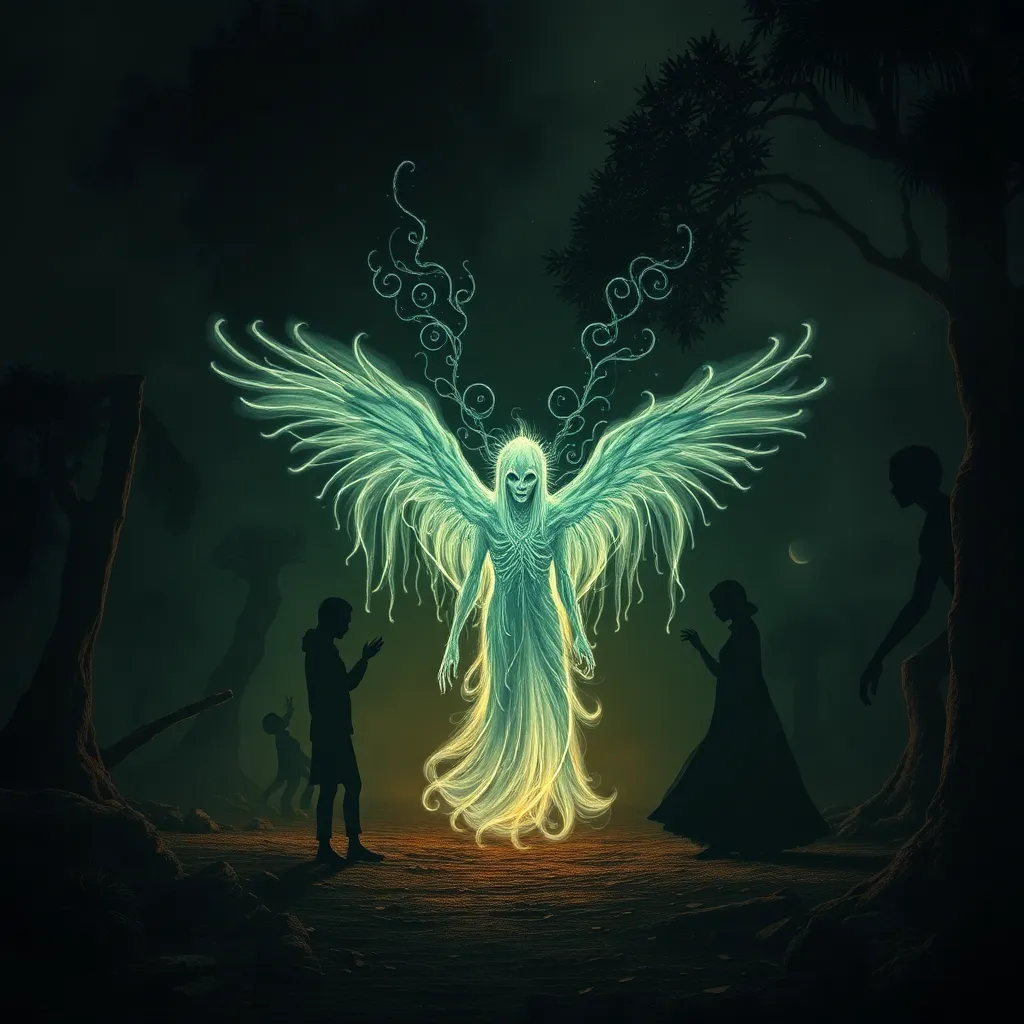The Unseen Guardians: Ghosts and Spirits in African Folklore
I. Introduction
In African culture, ghosts and spirits represent a profound connection to the past, embodying the beliefs and values of societies across the continent. These unseen entities are often viewed as guardians, guiding the living and influencing their daily lives. Understanding the definitions and roles of ghosts and spirits in African culture is essential for appreciating the rich tapestry of African folklore.
Folklore serves as a critical lens through which cultural beliefs are understood and transmitted. It encompasses stories, rituals, and practices that shape community identity and values. This article will explore the significance of ghosts and spirits in African folklore, delving into their historical context, types, regional variations, and contemporary interpretations.
II. Historical Context of African Folklore
The origins of ghost and spirit beliefs in ancient African societies can be traced back thousands of years. These beliefs often stemmed from the need to explain natural phenomena and human experiences, providing a framework for understanding life and death.
Oral traditions played a vital role in preserving these beliefs, as stories were handed down through generations, adapting and evolving while retaining core messages. Elders and storytellers were respected figures in their communities, tasked with imparting wisdom and cultural heritage.
However, the influence of colonization and globalization introduced new challenges to traditional beliefs. Many indigenous narratives were suppressed, altered, or replaced by foreign ideologies, leading to a complex interplay between traditional and contemporary beliefs.
III. Types of Spirits and Ghosts in African Belief Systems
A variety of spirits and ghosts populate African belief systems, each serving unique purposes:
- Ancestors as Protectors and Guides: Ancestors are revered as guardians who watch over their descendants. They are believed to offer guidance, protection, and blessings.
- Nature Spirits and Their Connection to the Environment: Spirits linked to natural elements, such as rivers, mountains, and trees, embody the land’s essence and are often invoked for harmony and balance.
- Malevolent Spirits and Their Roles in Cautionary Tales: These spirits serve as warnings against undesirable behaviors, reinforcing societal norms and ethics through storytelling.
IV. Regional Variations in Ghost and Spirit Narratives
Across Africa, the beliefs surrounding ghosts and spirits vary significantly, influenced by cultural practices and historical contexts:
- West African Beliefs and the Significance of the Afterlife: In many West African cultures, there is a strong emphasis on the afterlife, where the spirits of the deceased continue to play active roles in the lives of the living.
- East African Spirits and Their Ties to Cultural Practices: In East Africa, spirits often manifest in rituals and ceremonies, reinforcing community bonds and cultural identity.
- Southern African Traditions and the Interplay of Ancestors and Nature: Southern African beliefs frequently highlight the interconnectedness of ancestors and nature, with rituals aimed at honoring both realms.
V. The Role of Rituals and Ceremonies
Rituals and ceremonies are vital in expressing beliefs about spirits and ghosts. They serve various purposes, including honoring the deceased, seeking guidance, and ensuring communal harmony:
- Traditional Practices for Honoring Spirits: Many cultures engage in rituals to honor ancestors, such as offerings, prayers, and commemorative events.
- Healing Rituals and the Involvement of Ancestral Spirits: Ancestral spirits are often called upon during healing ceremonies, where their wisdom is believed to aid in the recovery of individuals and communities.
- Festivals and Communal Gatherings as Expressions of Belief: Festivals celebrating spirits and ancestors foster community bonds and cultural pride, showcasing the vibrancy of African traditions.
VI. The Symbolism of Ghosts and Spirits
Ghosts and spirits carry deep symbolism within African cultures:
- Ghosts as Reflections of Societal Values and Fears: The portrayal of ghosts often mirrors societal concerns, such as injustice, moral decay, and the need for communal harmony.
- Spirits as Embodiments of Natural Forces and Cultural Identity: Spirits connected to the environment symbolize the cultural identity and values of a community, reinforcing the importance of nature.
- The Duality of Spirits in Promoting Moral Lessons: Spirits can embody both constructive and destructive forces, serving as tools for teaching moral and ethical lessons to the community.
VII. Contemporary Interpretations and Representations
In modern times, ghosts and spirits continue to be represented in various forms of African literature and art, showcasing the enduring relevance of these beliefs:
- Ghosts and Spirits in Modern African Literature and Art: Contemporary authors and artists often draw on traditional beliefs, reinterpreting them to address current social issues and experiences.
- The Impact of Media on the Perception of African Folklore: Film, television, and digital media have played significant roles in shaping perceptions of African folklore, sometimes romanticizing or misrepresenting traditional beliefs.
- Revivals of Traditional Beliefs in Contemporary Society: Many communities are experiencing a resurgence of interest in traditional beliefs, leading to a blending of modern and ancestral practices.
VIII. Conclusion
The significance of ghosts and spirits in African culture is profound, serving as unseen guardians that connect the past with the present. Folklore acts as a bridge, preserving the wisdom of ancestors while adapting to modern realities. By understanding these beliefs, we gain insights into the values, fears, and aspirations of African societies.
In a world that often overlooks the spiritual dimensions of life, acknowledging the importance of unseen guardians can foster a deeper appreciation for cultural diversity and the rich narratives that shape human experience.



